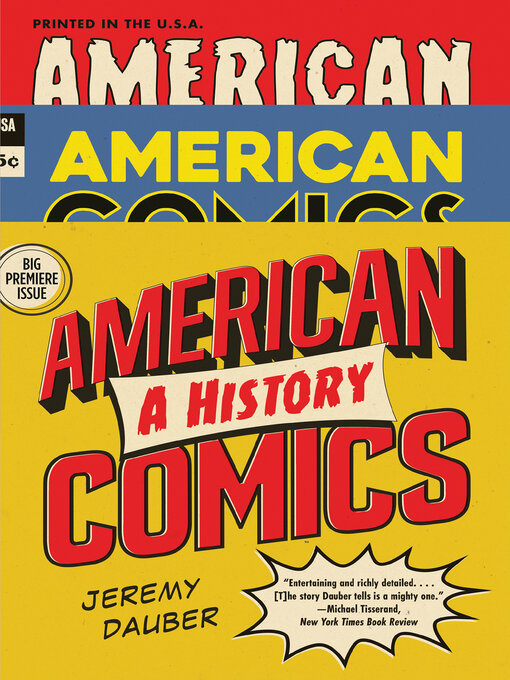The sweeping story of cartoons, comic strips, and graphic novels and their hold on the American imagination.
Comics have conquered America. From our multiplexes, where Marvel and DC movies reign supreme, to our television screens, where comics-based shows like The Walking Dead have become among the most popular in cable history, to convention halls, best-seller lists, Pulitzer Prize–winning titles, and MacArthur Fellowship recipients, comics shape American culture, in ways high and low, superficial, and deeply profound.
In American Comics, Columbia professor Jeremy Dauber takes readers through their incredible but little-known history, starting with the Civil War and cartoonist Thomas Nast, creator of the lasting and iconic images of Uncle Sam and Santa Claus; the golden age of newspaper comic strips and the first great superhero boom; the moral panic of the Eisenhower era, the Marvel Comics revolution, and the underground comix movement of the 1960s and '70s; and finally into the twenty-first century, taking in the grim and gritty Dark Knights and Watchmen alongside the brilliant rise of the graphic novel by acclaimed practitioners like Art Spiegelman and Alison Bechdel.
Dauber's story shows not only how comics have changed over the decades but how American politics and culture have changed them. Throughout, he describes the origins of beloved comics, champions neglected masterpieces, and argues that we can understand how America sees itself through whose stories comics tell. Striking and revelatory, American Comics is a rich chronicle of the last 150 years of American history through the lens of its comic strips, political cartoons, superheroes, graphic novels, and more.
FEATURING...• American Splendor • Archie • The Avengers • Kyle Baker • Batman • C. C. Beck • Black Panther • Captain America • Roz Chast • Walt Disney • Will Eisner • Neil Gaiman • Bill Gaines • Bill Griffith • Harley Quinn • Jack Kirby • Denis Kitchen • Krazy Kat • Harvey Kurtzman • Stan Lee • Little Orphan Annie • Maus • Frank Miller • Alan Moore • Mutt and Jeff • Gary Panter • Peanuts • Dav Pilkey • Gail Simone • Spider-Man • Superman • Dick Tracy • Wonder Wart-Hog • Wonder Woman • The Yellow Kid • Zap Comix
... AND MANY MORE OF YOUR FAVORITES!




